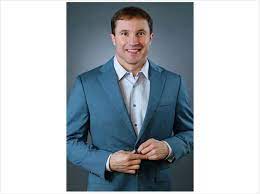
Maxillofacial Surgery: Navigating Facial Conditions with Dr. Mark Austin
Maxillofacial surgery serves as a bridge between dentistry and medicine, specializing in the intricate surgical management of complex diseases, injuries, and defects affecting the face, jaws, head, and neck. Dr Mark Austin sheds light on the diverse facial conditions that may necessitate surgical intervention, emphasizing the significance of maxillofacial surgery for optimal treatment outcomes.
Facial Trauma:
Maxillofacial surgeons play a pivotal role in treating facial trauma, addressing fractures of facial bones that impact both function and aesthetics. Beyond physical discomfort, facial trauma can hinder essential activities such as speaking and eating, making maxillofacial surgery essential for comprehensive restoration.
Oral Cancer:
Early-stage oral cancers may be managed with minor procedures, but advanced cases often require extensive maxillofacial surgery. Surgeons focus on tumor removal and reconstructive procedures, aiming to preserve vital functions while enhancing the patient’s aesthetic appearance post-surgery.
Temporomandibular Joint (TMJ) Disorders:
TMJ disorders cause pain and discomfort in the jaw joint and associated muscles. When conventional treatments fall short, maxillofacial surgery becomes a necessary step to address these issues permanently, providing lasting relief Dr Mark Austin.
Congenital and Acquired Jaw Deformities:
Conditions like micrognathia, macroglossia, and cleft lip and palate are examples of jaw deformities that significantly impact appearance and essential functions. Maxillofacial surgery offers corrective procedures to enhance the quality of life for individuals dealing with these conditions.
Impacted Teeth:
Impacted teeth, especially wisdom teeth, can lead to pain, infection, and damage to adjacent teeth. Surgical removal is often the most effective solution, relieving discomfort and safeguarding overall oral health.
Sleep Apnea:
Severe cases of sleep apnea may be addressed through maxillofacial surgery, with procedures like Uvulopalatopharyngoplasty (UPPP) aimed at enlarging the airway. This reduces the frequency of sleep apnea episodes, improving overall sleep quality.
Conclusion:
Maxillofacial surgery stands as a crucial avenue for addressing a diverse range of facial conditions, from traumatic injuries to congenital deformities and medical conditions. Through skillful surgical interventions, maxillofacial surgeons aim to restore both form and function, ultimately enhancing the overall quality of life for their patients. Recognizing when surgery becomes the optimal solution is a vital step toward comprehensive facial healthcare. Dr Mark Austin insights illuminate the multifaceted nature of maxillofacial surgery and its transformative impact on facial well-being.